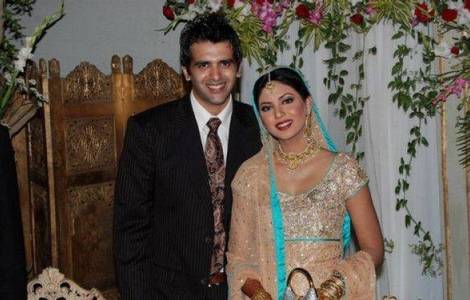
Islamabad (Agenzia FIdes) - The legislative law which aims at regulating the institution of Christian marriage in Pakistan and making it officially recognized by the state, so that it can be registered civilly, is making progress. As Fides learns, the Ministry of Human Rights sent the text of the Christian Marriage and Divorce Bill 2017 to the Ministry of Justice for a comprehensive review of the text before it is sent to the Office of the Prime Minister for the presentation and vote in Parliament.
The decision was taken by the Minister of Human Rights, Mumtaz Ahmed Tarar, after a meeting with a delegation of representatives of the Christian community. The Office of the Minister acknowledged some proposed modifications suggested by the delegation, consisting of priests, legal advisers, academics and members of civil society. They recommended that "law provisions are to be conformed to the Bible".
The Minister told members of the delegation that the bill was drawn up after a consultation with all sectors of the Christian community, including the leaders of the main confessions present in the country (Anglican, Catholic, Presbyterian, Salvation Army) and are generally accepted and considered valid. The law will be sent to the Ministry of Justice to examine its form on "law issues" and to establish that there are no conflicts with other laws, so that it can then reach Parliament for the final vote.
The starting point is the necessary updating of the provisions governing marriage and divorce in force in Pakistan which date to the second half of the 1800s, the period of British domination in the Indian subcontinent, well before the Pakistani nation was created. In those measures there are dated and anachronistic regulations, such as celebrating the wedding before twilight; in addition one wants the minimum age for marriage to go from 16 to 18 and make even the various practices followed in the various provinces of Pakistan. In fact, in recent months, the government of the Punjab province had announced a reform of those laws, but the intention is to have a valid reform for all communities at a national and non-regional level.
The draft law is part of the protection of the civil rights of religious minorities in Pakistan, so that they can maintain their identity and their customs in society, respecting the principle of religious freedom.
According to a recent report by the Justice and Peace Commission (NCJP) of the Catholic Bishops' Conference of Pakistan, titled "Proposals for Family/Personal Laws for Religious Minorities in Pakistan", the state needs to regulate and protect different aspects: the age at the time of marriage; the registration of the matrimonial act and its dissolution; dowry; divorce and any right to maintenance; succession and inheritance; the practices for adoption; the custody of their children and their illegality.
For the Commission, "the absence of civil rights laws has encouraged the increase of stereotypes, lack of understanding, religious fundamentalism, and intolerance towards the traditions and customs of non-Islamic communities". The "Justice and Peace" Commission's research was offered to the government as basic material to write the bill for Christian minorities.
The situation of Christians in Pakistan (about 2% of the population) follows that of Hindu minorities (about 1.5%). In 2016, the government approved the "Federal Hindu Marriage Act 2015", which allows for the civil registration of Hindu religious marriages, a law pursued also by Christians. (PA) (Agenzia Fides, 30/10/2017)